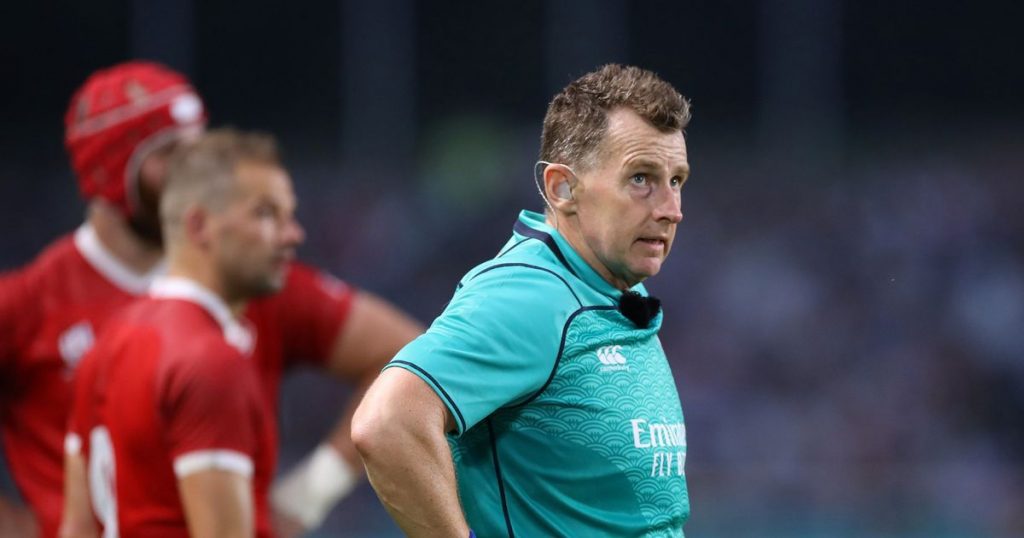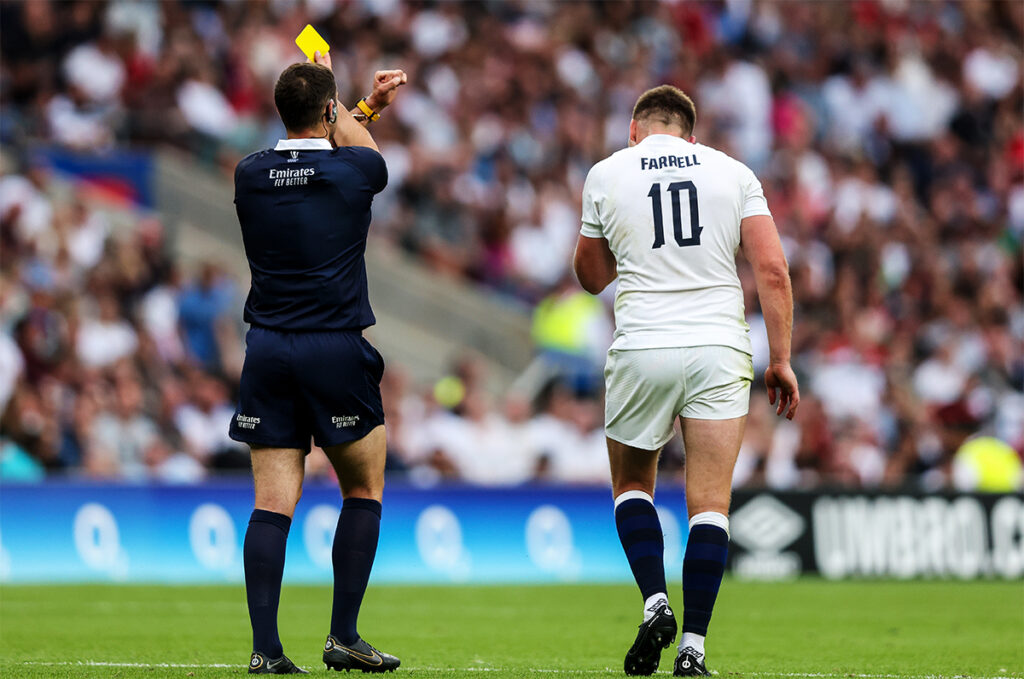Legendary referee Nigel Owens has his say on Owen Farrell tackle
Latest posts by Will Matthews (see all)
- Brian O’Driscoll slams Irish rugby fans that need to take a “hard look” at themselves - March 2, 2025
- New Zealander lands the head coach role at Munster Rugby - February 26, 2025
- ORIGIN ROUND: Shane Daly is proof that it’s never too late - February 25, 2025
Foul play.
Legendary referee Nigel Owens has had his say on Owen Farrell’s controversial no-arms tackle on Taine Basham last weekend in an excellent piece for WalesOnline.
Owens believes that Farrell’s tackle was indeed worthy of a red card and believes rugby is in big trouble if we cannot see that.
Farrell was yellow-carded originally for the hit before the bunker review system upgraded it to a red card. But an independent disciplinary committee, chaired by Six Nations Rugby saw the red card rescinded before World Rugby stepped in yesterday to appeal the verdict.
The England captain has now been left out of the squad to face Ireland on Saturday and faces a second hearing next week.
The original panel found that the actions of England hooker Jamie George affected the hit made by Farrell and resulted in enough mitigation, with George lowering Basham’s height with his initial challenge. But Owens disagrees…
“Owen Farrell is a great player who I have a huge amount of respect for,” Owens wrote.
“But he has a history of making this kind of tackle, he’s been punished before and perhaps got away with a couple too. So there’s a lot of emotion around the player, but as a referee we’ve got to strip that away and look at the facts.
“The referee and everybody at home watching the game would have been looking at that incident and going through their checklist.
“Do we have foul play? Yes, we do. Do we have contact with the head? Yes, we do. Do we have a high degree of danger? Yes, we certainly do. Do we have mitigation? In my view, no we don’t. I don’t think there was any late change from Basham which Farrell could not adjust to, he was the only player contributing to the action of the tackle. And when a player’s action is always illegal, then mitigation plays no part in the process.”
You can check out the full piece by Owens here.



